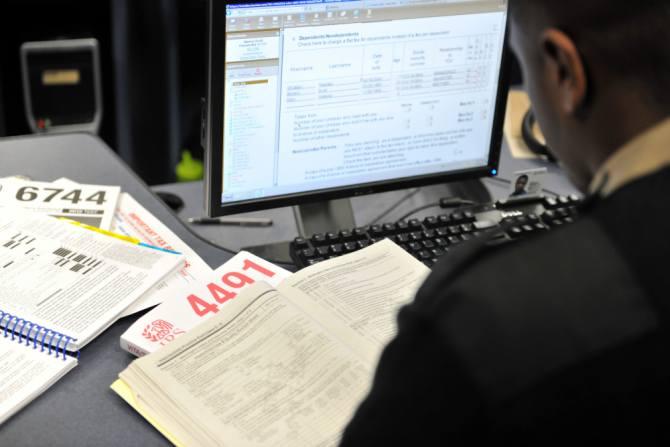'When a gift is received in cash, it is likely to be questioned, and your father may need to explain its source.'
Kuldip Kumar answeres taxation questions.

On the occasion of my marriage, I received Rs 30 lakh in cash from my father. Will this sum be taxed?
Under Section 56 of the Income Tax Act, 1961 ('Act'), any amount of money received without any consideration is taxable in the hands of the recipient, if the value of such receipts in the aggregate exceeds Rs 50,000 during a year.
Further, it has been clarified that any sum of money received from a relative or on the occasion of marriage or under a Will or by way of inheritance, etc. is not taxable in the hands of the recipient.
In your case, considering you have received cash from your father (specified relative) on the occasion of your marriage, it is not taxable in your hands.
However, there are other aspects of the transaction you need to be aware of.
As you know, the government is focusing sharply on eliminating black money.
It is also trying to promote a less-cash economy.
When a gift is received in cash, it is likely to be questioned, and your father may need to explain its source.
Section 269ST of the Income Tax Act, 1961, prohibits any person from receiving an amount of Rs 200,000 or more in a single transaction, or from a person in a day, or in a transaction relating to one event or occasion from a person.
Contravention of these provisions can lead to the imposition of a penalty equal to the amount received, unless it is proved that the contravention was for good and sufficient reasons.
You have provided limited details in your question.
You need to analyse the transaction carefully in the light of actual details.
Will I get indexation benefit on capital gains arising from the sale of a short-term asset?
No. Section 48 of the Income Tax Act, 1961, mentions that the benefit of indexation is available only on capital gains arising from the sale of a long-term capital asset.
I am an NRI, but have applied for Permanent Residency in Serbia. Am I liable to pay advance tax?
Will I get indexation benefit on capital gains arising from the sale of a short-term asset?
Yes, an individual whose total tax liability for a particular tax year exceeds Rs 10,000 is required to pay advance tax.
Only senior citizens (resident individuals aged 60 or more) are not required to pay advance tax.
There is no separate provision for NRIs in this regard, hence will have to pay tax in the prescribed four instalments.
The first instalment should be at least 15% of total tax and should be paid by June 15.
At least 45% of total tax should be paid by September 15, at least 75% by December 15 and 100% by March 15.
Failure to pay taxes in advance results in levy of penal interest.
Will I get indexation benefit on capital gains arising from the sale of a short-term asset?
I am a senior citizen while my wife is not. We have a joint account. Will we get Section 80TTA or Section 80TTB deduction?
The availability of deduction under Section 80TTA or 80TTB will depend upon who funded the account.
If you have funded the account 100%, the entire interest will be taxable in your hands.
Since you are a senior citizen, you are eligible to claim a deduction of up to Rs 50,000 under Section 80TTB.
On the other hand, if the account has been funded 100% by your spouse, then the interest will be taxable in her hands.
She will be able to avail deduction under Section 80TTA, up to Rs 10,000 as she is not a senior citizen.
In case the account has been funded by both of you equally, then both of you will get the deduction.
50% of interest will be taxable in your hands, and you can claim deduction under Section 80TTB up to Rs 50,000.
The remaining 50% of interest will be taxable in the hands of your spouse, and she will also be eligible to claim a deduction of Rs 10,000 under Section 80TTA.
Kuldip Kumar is partner and leader, personal tax, PwC India.













 © 2025
© 2025